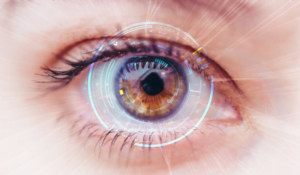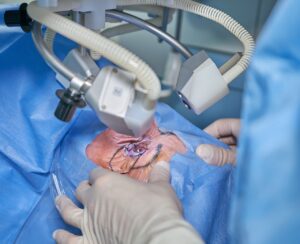
For our total health, including our eyesight, eating healthfully is essential. While occasional indulgences are allowed, consuming unhealthy meals in excess can result in serious health problems, including problems with the eyes.
The Dangers of Overeating
While overindulging in unhealthy foods can bring about short-term satisfaction, it can also have long-term negative effects on one’s health. Junk food overindulgence can result in weight gain, which is linked to diseases including diabetes, heart disease, and high blood pressure.
The Sneaky Effects of Sugar
One of the worst things for our general health, sugar, can be bad for our eyes. It harms blood vessels, raising the possibility of developing diabetic retinopathy, a condition that can cause blindness.
Fried Foods’ Hazards
Foods that are fried often include unhealthy fats that clog our arteries and raise our chance of developing cardiovascular disease. In turn, this increases the risk of age-related macular degeneration, one of the main causes of blindness in senior citizens.
Concerns Regarding Processed Meats
Saturated fats and sodium are harmful to blood vessels and may cause stroke or vision-related problems in processed meats like hot dogs, bacon, and sausage.
What White Flour Does
Inflammation and the absence of vital nutrients in highly refined white wheat may be contributing factors in eye conditions such dry eye syndrome and diabetic retinopathy.
Pursuing Balance
Although occasionally treating yourself to junk food is acceptable, moderation is the key. Aim for a balanced diet rich in nutrients that are good for overall health, including eye health, and be careful of the effects of overindulgence.
With an optometrist’s assistance, safeguard your vision.
It’s crucial to maintain your eye health. Your eyesight will stay healthy if you visit an optometrist frequently, who can take a retinal photo to check for any damage or problems.
Conclusion
Our vision and general health are significantly preserved by a nutritious diet. Even while the occasional indulgence is fun, choosing nutrient-rich diets and getting regular eye exams will keep our eyes healthy for years to come.
Frequently asked questions
The effects of a bad diet on vision are frequently cumulative rather than immediate. Poor dietary habits can cause a variety of eye conditions and raise the chance of difficulties affecting vision over time.
A nutritious diet that is well-balanced can promote the overall health of the eyes, as well as treat or slow the advancement of some eye disorders. However, it’s imperative to get specialized recommendations from an optometrist by consulting with a specialist.
Eye health has been linked to nutrients including omega-3 fatty acids, antioxidants (such vitamins C and E), lutein, zeaxanthin, and zinc. These nutrients are abundant in foods including fish, leafy greens, citrus fruits, nuts, and seeds.
Depending on a person’s unique circumstances and the severity of nutritional deficiencies, a poor diet can have varying effects on eye health. 5. How frequently should I see an optometrist for a retinal photograph? Some consequences may be reversible or managed with dietary modifications and good eye care, but others may be irreparable.





Recent Articles:

Alleviating Digital Eye Strain: Tips for Screen Users

The Truth About Seeing in the Dark

The Myth of Green Improving Eyesight

The Dangers of Looking Directly at the Sun

The Risks of Using Smartphones in the Dark on Eye Health

An Examination of Visual Phenomena for “Ghost Images”




